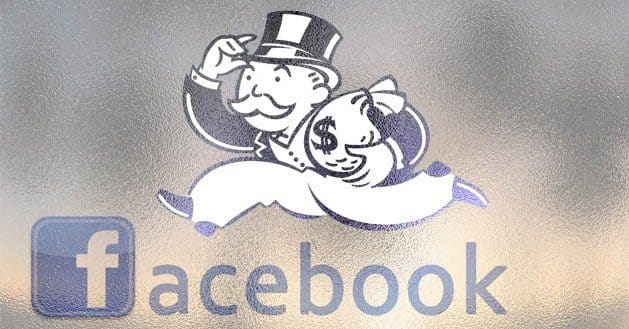 Written by ContentPowered.com
Written by ContentPowered.com
Most CEOs are infamously stubborn about using Facebook and other social networks. Do you even know all the CEOs of the Fortune 500 and Inc. 500 companies? I mean, not that you necessarily know them, it’s more like you’re familiar with them. I’m thinking ‘social media’ familiar!
For me, I’m an avid Facebook user, and I’m really interested to know if there are CEOs who are active in posting status updates or even sharing links anything out-of-the-ordinary, kind of un-CEO-like socially interactive approach. Unfortunately, CEOs are not your typical ‘public’ celebrities. When it comes to Facebook and CEOs there has been a lot of speculation about how involved should these company leaders be.
It is understandable; CEOs are extremely busy and it is unrealistic for business leaders to become heavily involved in the day-day use of company social media. According to surveys, two-thirds of consumers say their perceptions of CEOs impact their perceptions of the company, yet only 30% of Fortune 500 CEOs have an active social media presence on at least one platform, where 45% of them use Facebook. FYI, Twitter is the most popular social media tool among CEOs (almost 50%).
In my opinion, CEOs should take the advantage of the popularity of Facebook. With more than 500 million active users, CEOs can’t really turn a blind eye and say; “Not relevant to my industry”, or “Just for young people” As the main spokesperson and leader for the company, using Facebook should rank highly on the CEOs agenda. So, why should they?
PROFIT
1. Facebook can be used to boost productivity by giving customers more insight into their company.
In our world where more than a tenth of its population is virtually connected in Facebook, you can as the CEO lead your company in facilitating an open-ended corporate culture that values transparency, collaboration and innovation through Facebook. Most important, it can be an effective way to market their products and extend their brands. Right now, advertising and marketing are not only limited to television, or newspaper and magazine ads. With innovative marketing strategies,
- CEOs can help boost their productivity by focusing more on a consumer-centric organization. Facebook can be a good platform to communicate authentically and educate consumers about your business, products or services. This information carries more weight and value when it comes from the person leading the company.
- CEOs can also listen to consumers and learn from that interaction. And, that interaction can be easily facilitated by using Facebook as your social media approach. By having direct access to the number of ‘likes’ and ‘shares’,
- CEOs can assess and make their product more “social-friendly”. They can also use their ‘fans’ comments to gain additional insight on how these ‘netizens’ perceive the products or services their company provide. That may be not a very good representative of all the consumers’ perception, but at least
- CEOs can generally see personally what and how their company is being accepted or disapproved in the world of social networking. Heck, Facebook Pages is free, you know. Why not tap in with this amazing tool?
CONSUMERS
2. Facebook can enhance these CEOs’ credibility and trustworthiness by making them look and feel “human”.
Let’s face it, CEOs can be quite ‘mysterious’, and for me, more of an ‘alien’ entity. I mean, do they even exist? If they do, are they even human? Seriously, I know that most of us observe that these CEOs are cut off from their most important constituencies. Heck, they are considered to be a stranger with their employees, and how much more with their consumers. Their press conferences are carefully stage managed, their annual meetings over-rehearsed, and in both cases the goal is usually to reveal as little as possible.
Facebook can really help CEOs enhance their credibility by communicating directly and having authentic conversations with their consumers. They can share some of their experiences on how they made their company a successful one; or share news about the industry especially their industry. I, for one, would really love to read anything, just anything, relevant to these corporate leaders and their company they manage. The idea that you can communicate with these corporate giants feels more ‘human’, like you’re closer to them than anything before. I think it is highly effective, for some CEOs, to connect in a friendly, more personal way through Facebook. And with this type of CEOs, these “Social CEOs” as I would like to call them, they can even try to combat negative opinions and public criticisms as they establish the credibility they had earned in being socially active on Facebook.
It also puts a human face on the company, and not just seeing a brand or logo. It is more likely that consumers want to hear, or in this sense, read what CEOs are saying rather than what the brand’s logo is posting on Facebook. That can really be a good way to increase trustworthiness and integrity with your product and the company.
EMPLOYEES
3. Facebook can help CEOs to become a more effective leader.
Facebook can’t only be used by CEOs to communicate and learn, but also they can become a more effective leader. As I’ve said before, not just consumers think that these corporate leaders are stranger, even their very own employees do think in that sense. Well, you can’t blame these CEOs since there’s this “business organizational hierarchy” that makes it difficult to have direct communication with their ordinary employees. However, with Facebook, social CEOs can bridge, in a sense, this gap. They can engage with their employees, cutting through multiple layers of middle managers, and talk to them. This can give employees a direct access to their very own corporate leader.
This can also set as an example for their employees. By being active with Facebook, CEOs can foster encouragement with their staff to be more ‘connected’ with their dear consumers, and others. And, maybe in the long run, can help stimulate creativity, morale, and openness to collaboration within the company and the whole industry.
4. Facebook can be an avenue to attract the best employees.
According to a survey, nearly 80% of professionals would prefer to work for a company with a social CEO. As these chief executives interact with their current employees, they can easily retain their best employees; and in the process, easily attract new ones.
MEDIA
5. Facebook can provide more media opportunities.
CEOs which are active in Facebook can attract more business journalists and reporters as they can see that these corporate leaders are engaging to be more socially interactive and transparent. And what that entails is more media exposure through writing stories, or TV interviews which can help build influence, visibility and publicity.




